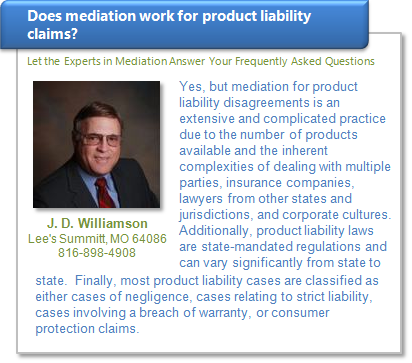Mediation for product liability disagreements is an extensive and complicated practice due to the number of products available and the inherent complexities of dealing with multiple parties, insurance companies, lawyers from other states and jurisdictions, and corporate cultures. Additionally, product liability laws are state-mandated regulations and can vary significantly from state to state. Finally, most product liability cases are classified as either cases of negligence, cases relating to strict liability, cases involving a breach of warranty, or consumer protection claims.
Negligence
In order to prove that negligence occurred, the plaintiff must show that there was a duty owed, that duty was breached, and the result of the breach caused the plaintiff’s injury. The injury must then be made quantifiable to determine what damages are owed, if any, by the defendant. These types of cases include claims involving manufacturing defects, design defects, or failure on the part of the defendant to warn the plaintiff of any potential injuries that could occur.
Strict liability
Strict liability focuses on the product, itself, rather than on the manufacturer of that product. If the product is determined to be defective, the manufacturer is liable for it. This type of claim places the burden of proof on the plaintiff and requires him or her to show that the defendant’s conduct fell below an acceptable standard.
Breach of warranty
A warranty is a statement that is provided by a manufacturer or seller regarding a product. A breach of warranty can occur in three different ways: (1) breach of an express warranty, (2) breach of an implied warranty, and (3) breach of an implied warranty of fitness for a particular purpose. Express warranty involves precise statements made by the manufacturer about the product (e.g., “These scissors will cut through metal”). An implied warranty deals with reasonable expectations that a consumer can have regarding the uses of a product (e.g., “This furniture polish should clean my wood furniture and not strip it”).






